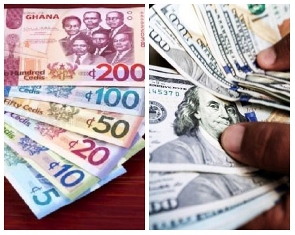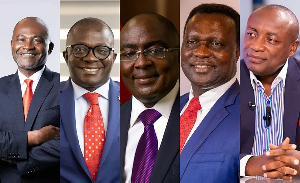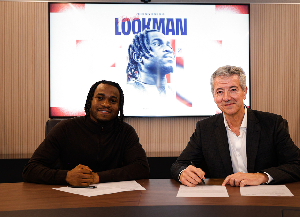When Ghanaians woke up on Monday, October 10, 2022, morning, to either read the news or undertake a transaction, little did some know that the Ghana Cedi has now hit the GH¢11 mark to the US$1 dollar. The rather surprising development for most citizens comes at a time when almost all the economic indicators in the country have signaled the wrong bells, with Ghana now seeking economic support from the International Monetary Fund. For the average Ghanaian, the persistent depreciation of the cedi against the US dollar has rather left many scrambling to make ends meet while others seem to be in panic mood over the 'failing' economy. In plain terms, the cedi's performance has culminated in rising inflation figures, huge debt costs, credit rating downgrades, policy rate hikes, increasing cost of living, and a general atmosphere of frustration among the average Ghanaian. Since the start of the year till date, the underwhelming performance of the cedi against the US dollar has also seen the currency losing about 40 percent of its value. This has placed the cedi in a perilous position after it has been ranked as the second worst-performing currency among 150 currencies in the world, according to Bloomberg. GhanaWeb Business in this article takes a look at the trend of the cedi’s performance against the US Dollar. Why the cedi is on a free fall At the beginning of January 2022, the cedi was trading at a rate of GH¢5.9 to the US dollar, according to data from the Bank of Ghana. But it shortly depreciated to GH¢6.02 at the inter-bank level, indicating a depreciation of nearly 12 percent - a signal which sparked the current performance of the cedi. The government, in presenting its 2022 budget, had hoped to pass a number of key policies to boost the country’s domestic revenue but that hit a snag as debate over the passage of the E-Levy rocked parliament. This then sent wrong signals to investors in both domestic and international markets. Also, demand for forex had overtaken supplies during a period when high debts and low investor confidence made it impossible for Ghana to access the international capital market for borrowing. Cedi breaks the 8 in March 2022 In March 2022, the Ghana Cedi continued its free fall against the US dollar, crossing the GH¢8 mark and selling at GH¢8.12 as of the 15th of the month. The local currency at the time was trading against the dollar at a buying price of GH¢7.94, while the British pound was selling at GH¢10.17 and buying at GH¢10.17. The currency however still went on a free fall despite witnessing some marginal appreciation. Cedi hits the 10 mark in September Although the government began to adopt certain measures in hopes of containing the cedi’s depreciation, the local currency's woes continued as it reached the GH¢10 to $1 mark in September. This signaled more concerns over the government’s ability to fully address the development, despite adopting a Special Foreign exchange auction for bulk distribution companies and a Gold Purchase Programme. As of Monday, September 5, 2022, some forex bureaus in Accra were selling $1 for GH¢10.12 and buying it at GH¢9.90. And as of September 27, the Minister of Finance, Ken Ofori-Atta, said the cedi had lost its value by about 31.7 percent to the US dollar. The local currency was selling at around GH¢10.50 to the US dollar on the retail market and forex bureaus. Cedi reaches unprecedented GH¢11 mark in October Despite the assurance from the government that measures were being adopted to address the cedi’s performance, the dollar hit the unprecedented GH¢11 to $1 mark at some forex bureaus in the country. As of October 8, 2022, checks by GhanaWeb Business showed that the cedi was selling at GH¢11.2 to $1 dollar. This has now renewed further concerns over the demand and supply of US dollars which now seems to be scarce in circulation. While Ghana waits to access an IMF-supported programme in 2023 amid ongoing negotations, recent downgrades of the country's creditworthiness by international rating agencies: Moody's, Fitch, Standard and Poors', all paint a rather gloomy picture of the economy. The Central Bank on October 7 announced a further hike in the monetary policy rate by 250 basis points to 24.5 percent from an earlier 22 percent to stem inflation pressures. But the Governor of the Bank, Dr. Ernest Addison, is convinced that the outlook of the Ghana cedi will improve, aided by the recent disbursement of a $750 million loan facility from Afreximbank. He added that the signing of the $1.13 billion COCOBOD syndicated loan and an agreement with gold and oil firms to purchase repatriated foreign exchange earnings will help stabilize the exchange rate. MA/WA Watch the latest episode of BizTech below:
Business News of Monday, 10 October 2022
Source: www.ghanaweb.com













